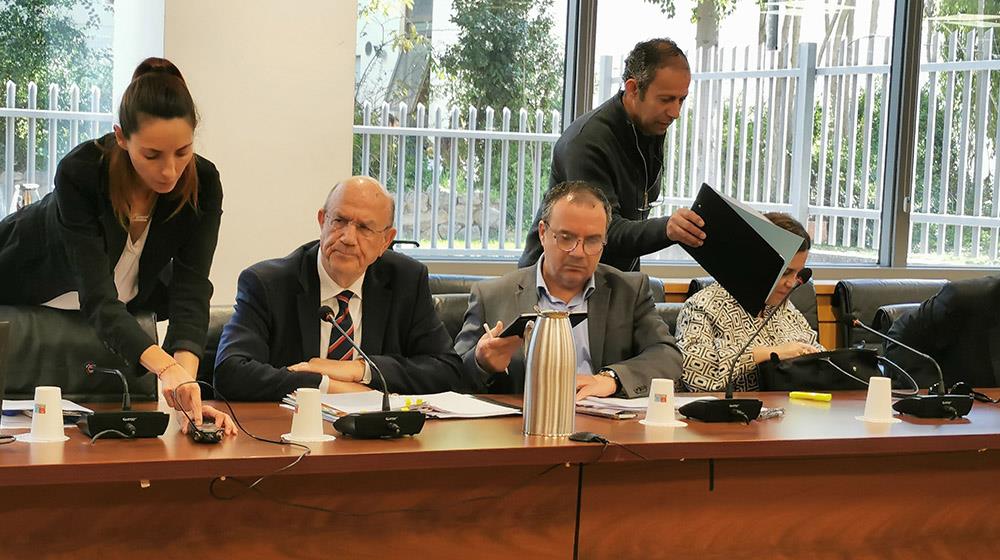Minister of Finance Makis Keravnos has called on banks to go ahead with loan restructurings, maintain low lending rates and bank charges and to increase deposit rates on the backdrop of continued basic rate hikes by Central Banks, warning that otherwise the government “would make different thoughts.”
In his first appearance to the Parliamentary Finance and Budgetary Committee on Monday, Keravnos said he raised the issue of rising interest rates in letters he sent to the Governor of the Central Bank of Cyprus (CBC) as well to the management of commercial banks.
“I have discussed this issue with the CBC Governor and I had sent letters to the CBC Governor and commercial banks and credit acquiring companies with clear suggestions over timely restructurings, reduction of lending rates and mainly to draft a list with strategic defaulters,” he said, pointing out that not all borrowers can be dealt with in the same way.
Keravnos said he will hold meetings with the CEOs of the Cypriot banks to discuss the issue.
Banks as large corporations have a social corporate responsibility to society and people who at the time of crisis have paid a great price to support the banking sector,” he said, referring to the financial crisis in 2013.
MPs expressed concerns that rising lending rates may lead to new non-performing loans (NPLs) and voiced objections to the extremely low rates paid by the banks to depositors.
“I agree that deposit rates are low and we have pointed this out to banks and I think, at least from our first communications, there will be a positive response. I hope that soon we will see results so we will not have to make other thoughts,” he said.
Keravnos also said the government could consider expanding the mandate of the Financial Ombudsman and increasing its staff.
He however pointed out that the continued suspension of foreclosures is no solution to the issue of NPLs “because it only inflates the problem”, while Cyprus is monitored by rating agencies and the European Commission.
“This must stop,” he said, adding that new solutions should be considered.
With regard to a proposal over the establishment of a special court for non-performing borrowers, Keravnos said he would absolutely agree with this “provided that it would examine the cases quickly and it would not take five or ten years.”
“Otherwise, we will preserve the current situation,” he added.
With regard to the increased prices in energy, Keravnos did not rule out the renewal of government schemes to support households and businesses depending on the developments of inflation and price increases.
The Finance Minister recalled the schemes to reduce the excised duty on fuel and the scaled subsidy on electricity bills due to the high international oil prices which expire in May and April respectively with a total cost of €84 million.
“The Ministry is ready to reconsider these schemes and will act accordingly,” he said.
He also said the government could also reconsider the schemes for interest rate subsidy to housing loans and corporate loans. “These plans could be reintroduced depending on the developments,” he said.
Furthermore, Keravnos said the government is proceeding with a tax reform which among other things includes raising the tax-free income threshold, and increasing disposable income, especially for low-wage earners.
“This is something we are considering. The previous tax reform was made in 2008. We believe it is necessary to proceed with a new tax reform,” he said, adding the reform will be fiscally neutral.
“The aim is an additional mechanism for a better, fairer distribution of income,” Keravnos added.
The current tax-free income threshold in Cyprus stands at €19,500.
Moreover, Keravnos also reiterated his aim to preserve fiscal discipline and financial stability and recalled that the EU’s Stability and Growth Pact’s escape clause will be terminated in the end in 2023, which means that euro area member-states should draft four-year plans aiming at convergence with the Maastricht criteria including public debt ratio of 60% of GDP.
“To achieve this, we must operate in a strict fiscal framework and to get there we should maintain a primary surplus (excluding debt-servicing costs) of over 2%,” he said.
Keravnos called on the Parliament to approve a government bill over the reduced VAT rate on housing, pointing out that there is a danger that the European Commission will impose a fine for non-compliance with EU directives.
Noting that the Commission has agreed with the latest government proposals he said “the parliament should agree on the bill to avoid any consequences.”
The government bill provides for a reduced VAT rate of 5% for the first 170 square metres of a home of a total surface area of 220 square metres and with a property value up to €350,000. For apartments, the lower rate would apply to the first 90 square metres of a total surface area of 110 square metres and with a property value up to €200,000.
(Source: CNA)









